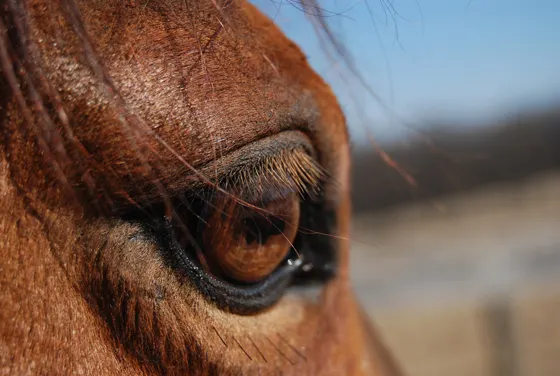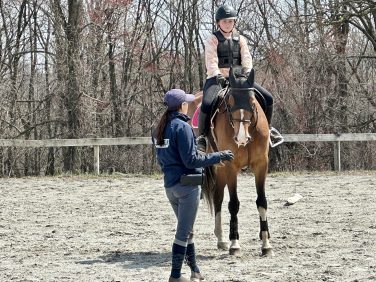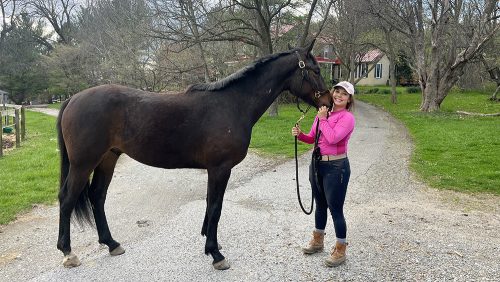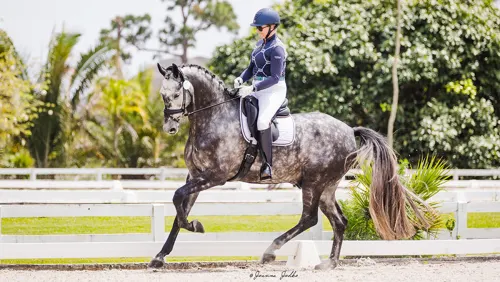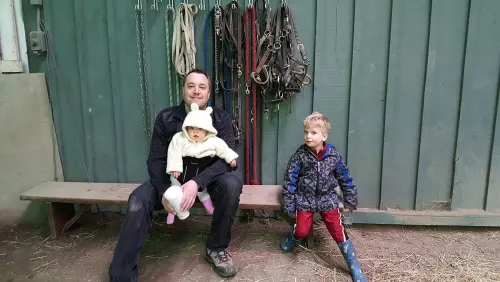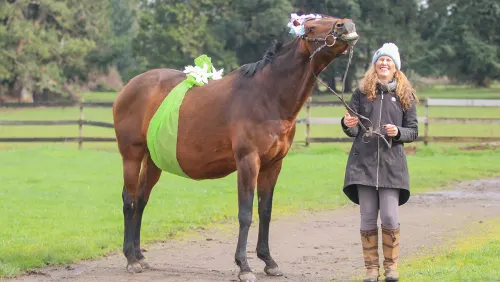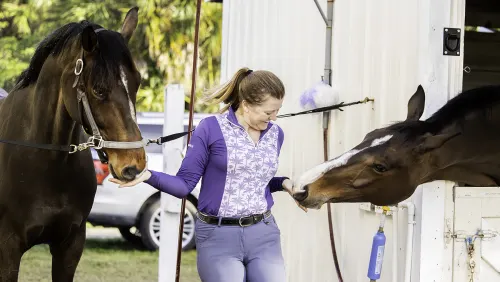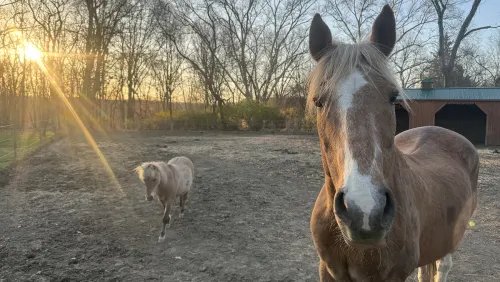Do you ever wonder why we call things what we do? When I was a kid, I used to wonder what the world would be like if blue was actually yellow, up was supposed to be down, and yes really meant no. I also was curious why bad words were really all that bad, much to the chagrin of my parents, who were saints when it came to my endless curiosity.
But when it came to horses, I never questioned the name they were assigned. Horse just made sense. It was elegant and simple, but powerful all at once. Horse. Has a nice ring to it, doesn’t it?
When the light bulb I like to call my brain went a’flickering with the idea of writing about the history of horses, it seemed logical to start from the very beginning. Why do we call them horses, anyway?
A quick Google search guided me to the Online Etymology Dictionary (http://www.etymonline.com/index.php), which gave me this definition: O.E. hors, from P.Gmc. *khursa- (cf. O.N. hross, O.Fris. hors, M.Du. ors, Du. ros, O.H.G. hros, Ger. Roß “horse”), of unknown origin, connected by some with PIE base *kurs-, source of L. currere “to run.” Replaced O.E. eoh, from PIE *ekwo- “horse” (cf. Gk. hippos, L. equus, O.Ir. ech, Goth. aihwa-, Skt. açva-, all meaning “horse”).
Huh? Can anyone read that? Translation, please!
A little more research (and a look-see through the dictionary on my desk that probably hadn’t been used since the dark ages of The Chronicle) helped me decode the mystery behind the word “horse.”
Old English hors, from Proto-Germanic (hypothetical prehistoric ancestor of all Germanic languages, including English). *khursa (words beginning with * are not attested in any written source, but have been reconstructed by etymological analysis) – compare Old Norse hross, Old Frisian hors, Middle Dutch ors, Dutch ros, Old High German hros, German Roß, all meaning “horse,” of unknown origin, connected by some with Proto-Indo-European (the hypothetical reconstructed ancestral language of the Indo-European family. Time scale is debated, but proposed date is about 5,500 years ago). *kurs – source of Latin currere “to run.” Replaced Old English eoh from Proto-Indo-European *ekwo- “horse,” compare Greek hippos, Latin equus, Old Irish ech, Gothic aihwa-, Sanskrit açva-, all meaning “horse.”
In simple English: “Horse” came from the Old English word “hors,” which basically traces back to “currere,” Latin for “to run.”
ADVERTISEMENT
According to the OED, the roots of the word “hors” may have been lost due to the “superstitious taboo on uttering the name of an animal so important in Indo-European religion.”
You have to admit, it’s kind of cool to see how all these different cultures regarded the horse with the same awe that we still do today, but I sort of wonder what it would be like if horses had been called something else instead.
“I think I’m going to go ride my cow/donkey/jackass/mule/deer/elephant/giraffe today.”
While I’m sure we have all labeled our animals as such, they just don’t have the same ring as “horse.”
I think our ancestors deserve some kudos for that one.
One of web writer Coree Reuter’s favorite parts of working at The Chronicle of the Horse is adventuring up into the attic. While it’s occasionally a journey that requires a head lamp, GPS unit and dust mask, nearly 75 years of the equine industry is documented in the old issues and photographs that live above the offices, and Coree is determined to unearth the great stories of the past. Inspired by the saying: “History was written on the back of a horse,” she hopes to demystify the legends, find new ones and honor the horses who have changed the scope of everyday life with this blog.
Curious about anything in particular? Have a question or an interesting topic? Please e-mail Coree, she’d love to hear from you!

